Press Releases
Applying advanced manufacturing technology to complex biomedicines
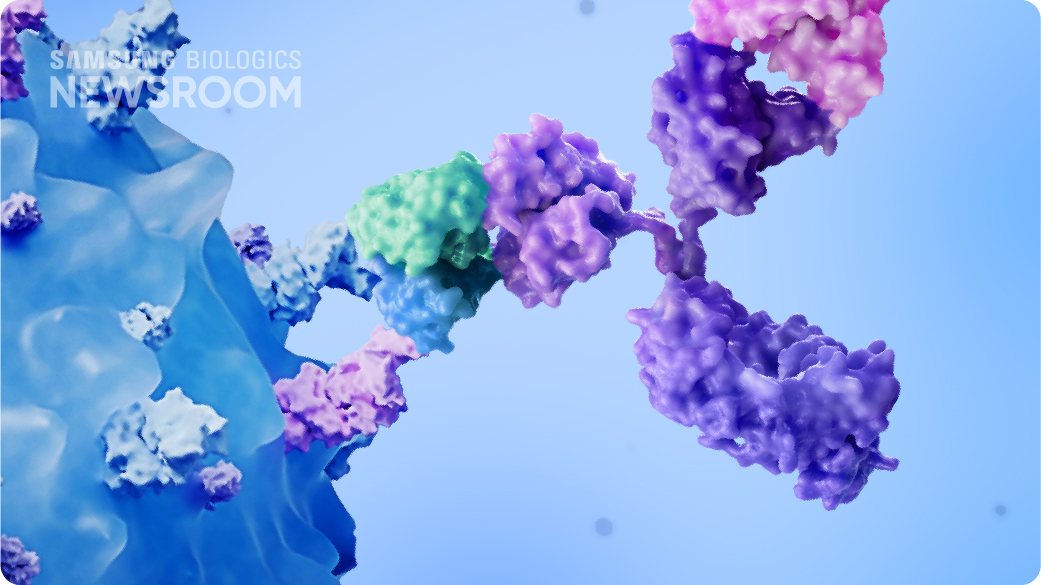
Known for its industry-leading capacity, Samsung Biologics is also well equipped with advanced manufacturing technology and processes to execute projects for complex modalities including multispecific antibodies.
The multispecifics market, driven by the development of new treatments, is forecast to have a compound annual growth rate of 9.5% during the 2024-2030 period [source]. And the number of multispecific antibody medicines in clinical development is predicted to grow from 900 currently to over 1,200 [GlobalData] [source].
While multispecifics can present challenges in manufacturing due to their elaborate molecular structure, Samsung Biologics offers strengths in agility, flexibility, operational excellence, technology innovation, and timely capacity expansions to support clients’ complex manufacturing needs.
Committed to meeting clients’ manufacturing timelines
Samsung Biologics has an extensive track record in meeting production timelines. Two bioreactors for each train in the CDMO’s most recently constructed biomanufacturing plants – also to be the case for upcoming plants in BioCampus II – enable short production turnaround times and allow for agile project execution.
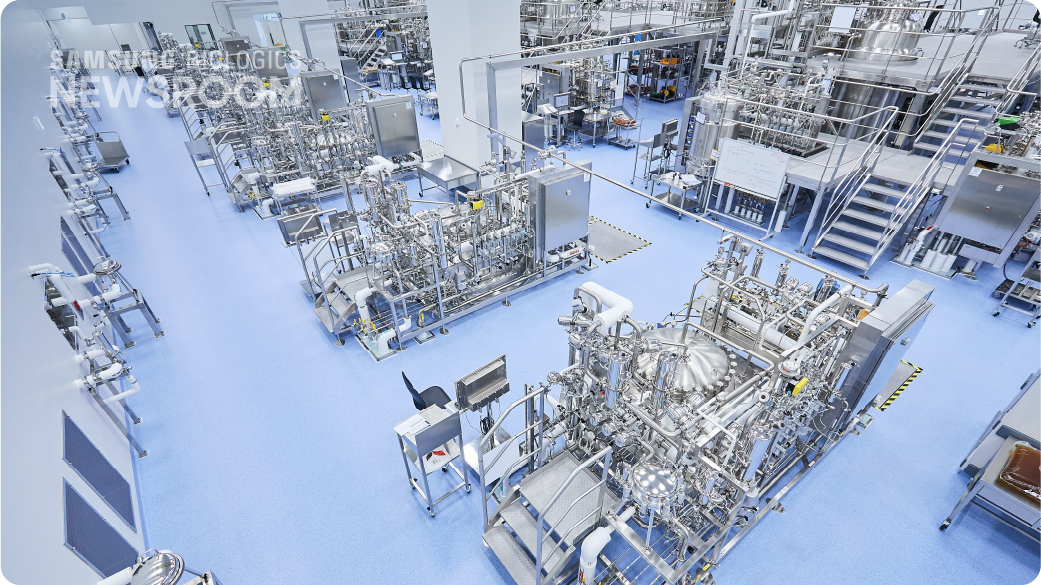
Powered by such agility, a recent multispecific antibody manufacturing project at Samsung Biologics received successful process performance qualification (PPQ). “Starting from due diligence prior to the kick-off meeting, we set up processes based on a facility fit assessment and mass balance analysis,” said Joomyung Lee, Lead Engineer and Director of the Purification Group in one plant. “Through organic collaboration between the client and our manufacturing science and technology (MSAT), manufacturing, and corporate engineering teams to address any gaps in the process, we successfully kept to the timeline for introducing all necessary equipment for the project.”
Jeongsoo Lee, Senior Scientist in the plant’s Tech Transfer Group, said: “We had to separate parental materials of the multispecific product even though they underwent the same processes when being manufactured. We did this by running the processes on separate trains, achieving successful segregation and cadence.”
Optimized timelines for validation and vendor management also pave the way for agile execution of projects. “Thanks to the close collaborative relationship formed with our vendors during plant capacity expansion by our purchasing and procurement department, we were able to successfully complete the introduction and authorization of new equipment on time,” Joomyung said. His group completed the design, procurement, and validation of the ultrafiltration / diafiltration (UF/DF) skid in a shorter time than the conventional lead time suggested by the vendor.
Flexible processes and facility fit
Also of note has been the CDMO’s flexibility. Designed to fit processes for diverse complex molecules, Samsung Biologics’ facilities minimize delays caused by product change-over and suboptimal production cadence.
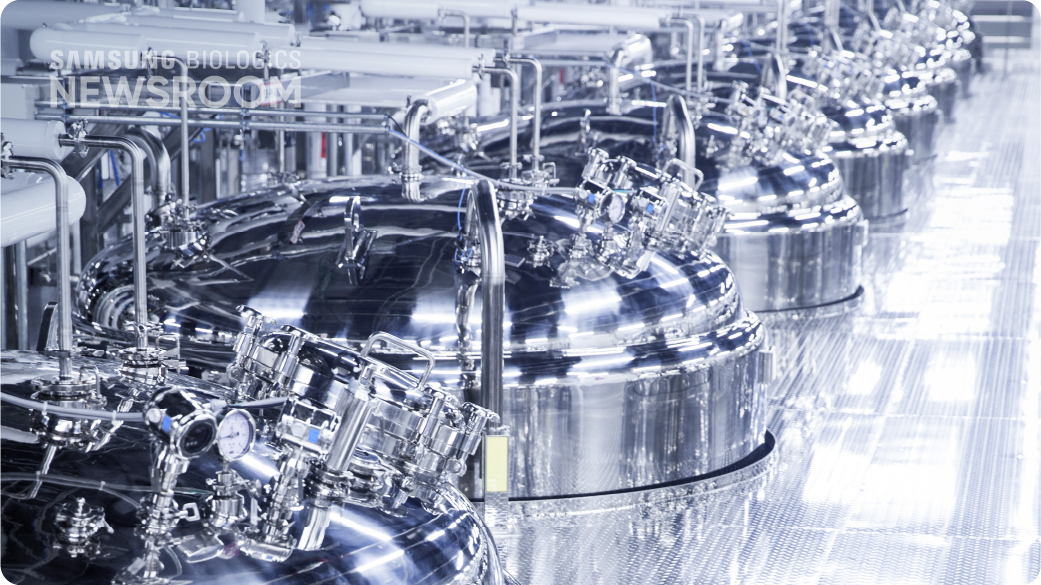
“To accommodate diverse complex molecules and processes, we have additional main equipment, utility, and supporting equipment necessary to proceed with setups apart from those used for conventional antibody processes,” said Joomyung. “There were many unit processes and required equipment compared to regular processes, but we had the flexibility to carry this out. On top of the engineering and construction capabilities for independent modification of our plants, we had the flexibility and automation needed for introducing new sensors.”
Commitment to operational excellence and technology innovations
Equal in importance as Samsung Biologics’ flexibility is its commitment to upholding high standards in operations. Validation and maintenance can introduce hurdles at any step, but the CDMO’s risk-based and phase-appropriate approaches help root out inefficiencies.
The multispecifics project required the preparation and combining of parental antibodies for bispecific antibody formation, prior to entering the downstream process for conventional monoclonal antibodies. The unit process of thawing the parental materials from the out-of-freeze stage, transferring each material to a pooling bag, combining them according to the appropriate ratio, aligning the right composition and conditions, and undergoing reduction was but the first of eight downstream unit processes. But this initial unit process took up half the time of the entire process itself, requiring manual and time-intensive labor. To avoid any unexpected mistakes or confusion by operators, Jeongsoo and her colleagues simplified the design of this manual process and provided a detailed manufacturing batch record (MBR) procedure.
To minimize process delay, they focused on addressing the bottleneck: three cycles of hydrophobic interaction chromatography during the downstream process. “At Samsung Biologics, we implemented in-line dilution loading instead of adjusting load conductivity in the pool before each cycle, reducing process time. And we increased the production efficiency of each batch by conducting parental material mass calculation and facility fit at the maximum production size possible in our plant facility,” she said. “I would like to thank everyone involved from each department that helped to successfully execute a complicated and difficult process.”
Through its technological innovations including alternating tangential flow (ATF) perfusion in N-1 bioreactors, Samsung Biologics continuously works to boost productivity and improve facility use. The company has achieved a 98% success rate to date from production of over 2,000 drug substance and drug product batches, gaining more than 300 global regulatory approvals.
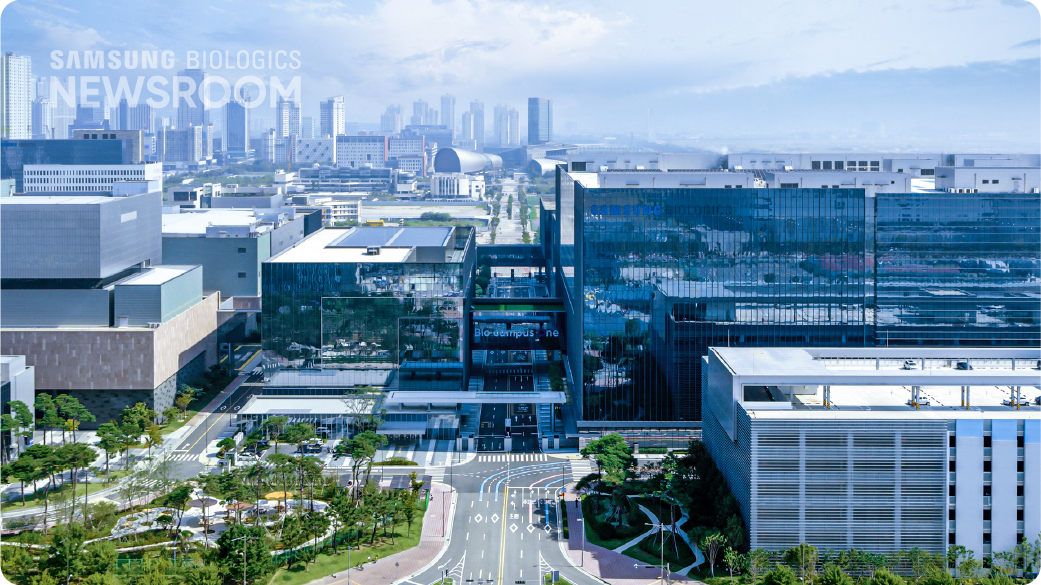
Expanding capacity and looking ahead
With ongoing expansion of Samsung Biologics’ manufacturing scale driven by the soon-to-be operational Plant 5 and ADC facility in synergy with the current four fully operational plants, the global CDMO strives to accommodate growing demand for contract manufacturing. Each plant also has various bioreactor sizes – 1 kL, 5 kL, 10 kL, and 15 kL – along with seed trains that are equipped to provide successful scale-up strategies for client portfolios spanning diverse modalities.
Samsung Biologics’ flexibility and agility, along with its core manufacturing strengths in operational excellence, technological innovations, and capacity, enable therapeutic solutions that multispecifics can offer patients. With optimized upstream and downstream process cadence, campaign interval, and turnaround time – in parallel with timely communication with clients through real-time connectivity worldwide – proven manufacturing expertise at Samsung Biologics offers the healthcare landscape peace of mind for multispecific project needs and beyond.
Related Content
Samsung BIO Insight The Benefit of Speed, Scale & Quality | Explore Samsung Biologics’ CMO Strengths
Samsung BIO Insight What’s in a Vial? An In-Depth Look into Drug Product Manufacturing
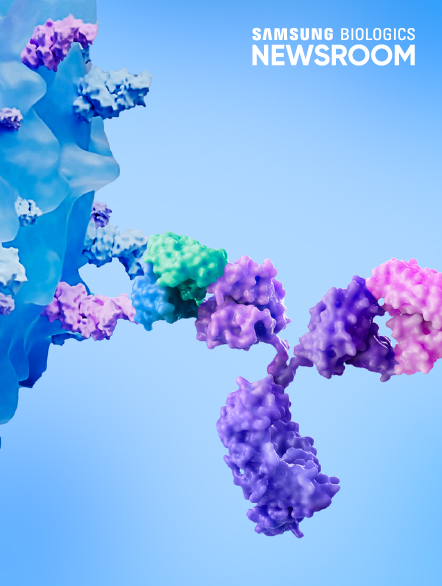
Known for its industry-leading capacity, Samsung Biologics is also well equipped with advanced manufacturing technology and processes to execute projects for complex modalities including multispecific antibodies.
The multispecifics market, driven by the development of new treatments, is forecast to have a compound annual growth rate of 9.5% during the 2024-2030 period [source]. And the number of multispecific antibody medicines in clinical development is predicted to grow from 900 currently to over 1,200 [GlobalData] [source].
While multispecifics can present challenges in manufacturing due to their elaborate molecular structure, Samsung Biologics offers strengths in agility, flexibility, operational excellence, technology innovation, and timely capacity expansions to support clients’ complex manufacturing needs.
Committed to meeting clients’ manufacturing timelines
Samsung Biologics has an extensive track record in meeting production timelines. Two bioreactors for each train in the CDMO’s most recently constructed biomanufacturing plants – also to be the case for upcoming plants in BioCampus II – enable short production turnaround times and allow for agile project execution.
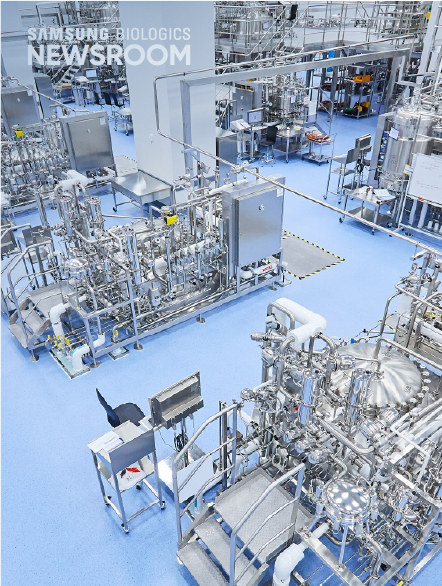
Powered by such agility, a recent multispecific antibody manufacturing project at Samsung Biologics received successful process performance qualification (PPQ). “Starting from due diligence prior to the kick-off meeting, we set up processes based on a facility fit assessment and mass balance analysis,” said Joomyung Lee, Lead Engineer and Director of the Purification Group in one plant. “Through organic collaboration between the client and our manufacturing science and technology (MSAT), manufacturing, and corporate engineering teams to address any gaps in the process, we successfully kept to the timeline for introducing all necessary equipment for the project.”
Jeongsoo Lee, Senior Scientist in the plant’s Tech Transfer Group, said: “We had to separate parental materials of the multispecific product even though they underwent the same processes when being manufactured. We did this by running the processes on separate trains, achieving successful segregation and cadence.”
Optimized timelines for validation and vendor management also pave the way for agile execution of projects. “Thanks to the close collaborative relationship formed with our vendors during plant capacity expansion by our purchasing and procurement department, we were able to successfully complete the introduction and authorization of new equipment on time,” Joomyung said. His group completed the design, procurement, and validation of the ultrafiltration / diafiltration (UF/DF) skid in a shorter time than the conventional lead time suggested by the vendor.
Flexible processes and facility fit
Also of note has been the CDMO’s flexibility. Designed to fit processes for diverse complex molecules, Samsung Biologics’ facilities minimize delays caused by product change-over and suboptimal production cadence.
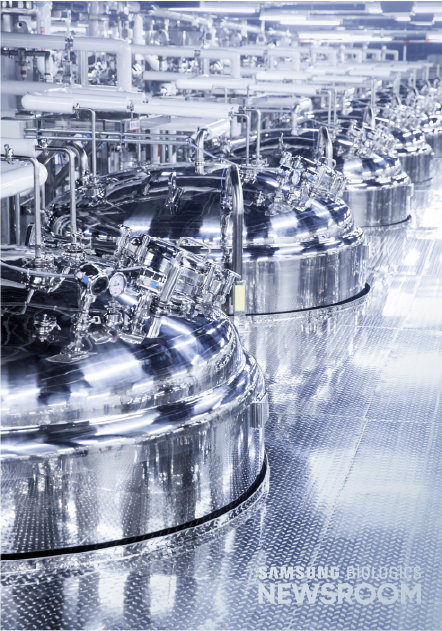
“To accommodate diverse complex molecules and processes, we have additional main equipment, utility, and supporting equipment necessary to proceed with setups apart from those used for conventional antibody processes,” said Joomyung. “There were many unit processes and required equipment compared to regular processes, but we had the flexibility to carry this out. On top of the engineering and construction capabilities for independent modification of our plants, we had the flexibility and automation needed for introducing new sensors.”
Commitment to operational excellence and technology innovations
Equal in importance as Samsung Biologics’ flexibility is its commitment to upholding high standards in operations. Validation and maintenance can introduce hurdles at any step, but the CDMO’s risk-based and phase-appropriate approaches help root out inefficiencies.
The multispecifics project required the preparation and combining of parental antibodies for bispecific antibody formation, prior to entering the downstream process for conventional monoclonal antibodies. The unit process of thawing the parental materials from the out-of-freeze stage, transferring each material to a pooling bag, combining them according to the appropriate ratio, aligning the right composition and conditions, and undergoing reduction was but the first of eight downstream unit processes. But this initial unit process took up half the time of the entire process itself, requiring manual and time-intensive labor. To avoid any unexpected mistakes or confusion by operators, Jeongsoo and her colleagues simplified the design of this manual process and provided a detailed manufacturing batch record (MBR) procedure.
To minimize process delay, they focused on addressing the bottleneck: three cycles of hydrophobic interaction chromatography during the downstream process. “At Samsung Biologics, we implemented in-line dilution loading instead of adjusting load conductivity in the pool before each cycle, reducing process time. And we increased the production efficiency of each batch by conducting parental material mass calculation and facility fit at the maximum production size possible in our plant facility,” she said. “I would like to thank everyone involved from each department that helped to successfully execute a complicated and difficult process.”
Through its technological innovations including alternating tangential flow (ATF) perfusion in N-1 bioreactors, Samsung Biologics continuously works to boost productivity and improve facility use. The company has achieved a 98% success rate to date from production of over 2,000 drug substance and drug product batches, gaining more than 300 global regulatory approvals.
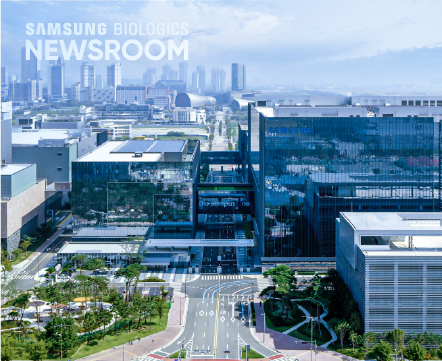
Expanding capacity and looking ahead
With ongoing expansion of Samsung Biologics’ manufacturing scale driven by the soon-to-be operational Plant 5 and ADC facility in synergy with the current four fully operational plants, the global CDMO strives to accommodate growing demand for contract manufacturing. Each plant also has various bioreactor sizes – 1 kL, 5 kL, 10 kL, and 15 kL – along with seed trains that are equipped to provide successful scale-up strategies for client portfolios spanning diverse modalities.
Samsung Biologics’ flexibility and agility, along with its core manufacturing strengths in operational excellence, technological innovations, and capacity, enable therapeutic solutions that multispecifics can offer patients. With optimized upstream and downstream process cadence, campaign interval, and turnaround time – in parallel with timely communication with clients through real-time connectivity worldwide – proven manufacturing expertise at Samsung Biologics offers the healthcare landscape peace of mind for multispecific project needs and beyond.
Related Content
Samsung BIO Insight The Benefit of Speed, Scale & Quality | Explore Samsung Biologics’ CMO Strengths
Samsung BIO Insight What’s in a Vial? An In-Depth Look into Drug Product Manufacturing